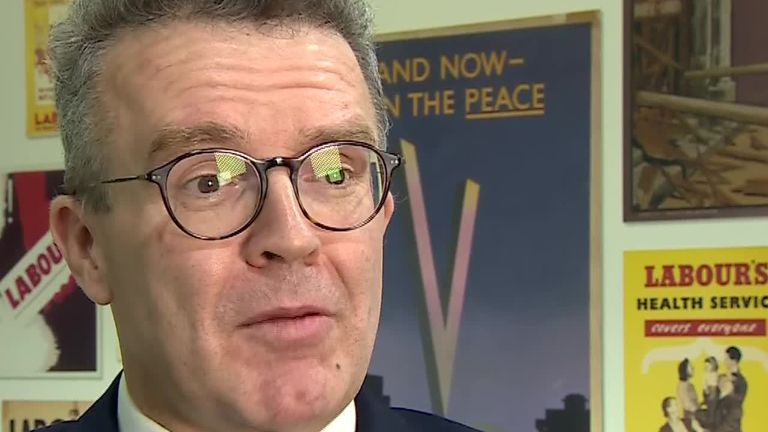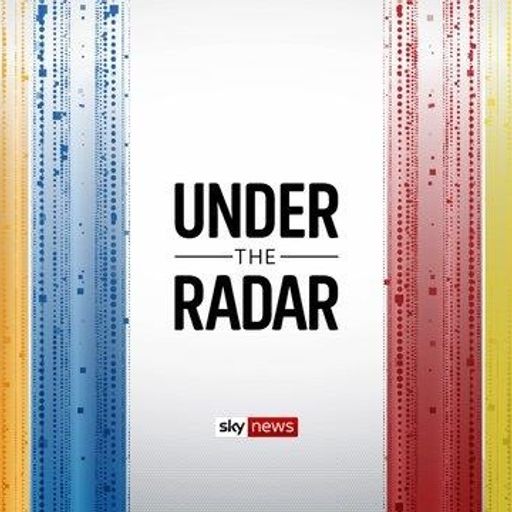General election: Jeremy Corbyn tightens grip on Labour as moderates Watson and Austin quit
Tom Watson and Ian Austin's departures could mean the end of the "old Labour" moderates, writes Tamara Cohen.
Thursday 7 November 2019 12:54, UK
Back in February this year, after weeks of rumour and speculation, nine MPs left Jeremy Corbyn's Labour party.
They could no longer stand for inaction on antisemitism and the direction of the party's leader on Brexit, the economy and national security.
One of those MPs was Ian Austin, MP for Dudley North for 14 years, a one-time junior minister and previously an aide to Gordon Brown.
Unlike his colleagues, he did not join Change UK - which was to ultimately fail - but ploughed his own furrow as an independent, and vocal critic of his former party and its leader.
Today he announced he would not only leave politics, choosing not to stand again as an MP, but is asking voters to support Boris Johnson instead of Jeremy Corbyn.
The son of Jewish refugees from eastern Europe, he says Mr Corbyn is "not fit to be prime minister" and leads an institutionally racist party.
His words clearly rip open a running sore for Labour - antisemitism - which they had hoped would not rear its head in this election, and may well continue to count against Mr Corbyn in the eyes of voters.
Although he does not regard himself as a Tory, his intervention has been warmly welcomed by the Conservatives.
In fact, the departures of Mr Austin and his fellow travellers lay bare how the Labour party has been completely, and maybe irretrievably, reshaped by its left-wing leadership. The centrists have been outmanoeuvred.
His push against Mr Corbyn came hours after Tom Watson, Labour's deputy leader, made the shock announcement he would be standing down.
Another Midlands MP and acolyte of Gordon Brown, both are from Labour's "old right" tradition, but have taken very different approaches to a leader they both have fundamental differences with.
Mr Watson has at times also been a firm critic of antisemitism, and has infuriated the leadership with his interventions on Brexit - pushing for a second referendum before they were ready to.
But more often, his "political differences" with the leadership, as he put in his cordial resignation letter, have been argued behind closed doors.
As Mr Corbyn's allies have taken control of the party's machinery at every level except in the parliamentary party, the deputy leader - elected by party members - has remained the immovable bulwark.
Viewed with deep suspicion by activists loyal to the leader, he was the hope for Labour's now quiet and chastened moderates, since their failed coup in 2016, that one day the party would go in a different direction. Now their hope is fading.
In February, Mr Watson was a crucial player behind the scenes. As some of his friends - including Jewish MP Luciana Berger - said they could no longer stay in the party and many more Labour MPs discussed deserting the party en masse, it was Watson who persuaded them to stay and fight.
To try and mobilise them, he set up the Future Britain group, said to have been attended by around a third of Labour MPs, as a way for MPs opposed to the leadership to have their voices heard.
Many are disappointed, angry even, that he is now deserting them. He did not leave with a blast at the leadership, insisting he is stepping down for personal reasons.
But clearly he feels he can make a greater difference on issues he cares about outside the House of Commons.
Ian Austin could not have held on to his marginal seat as an independent, up against a Labour candidate.
For Tom Watson, if Labour form the largest party after this election, a vindication of Mr Corbyn's leadership, there would be little obvious future for him at the top of it. He has already faced down one attempt to abolish his position by Corbyn activists.
Even if Labour lose, and a battle for the party's future ensues, the deputy leadership will be tightly contested.
Boris Johnson, who removed the whip from Tories who opposed his no-deal plan, has seen a small exodus of so-called One Nation Tories who will not be standing again.
:: Listen to the All Out Politics podcast on , , ,
Mr Corbyn can also use this election to reshape the party in his image. If his leadership does not last, his allies want to make sure they are carrying the flame.
For the Labour moderates, who hoped - in vain - that Mr Corbyn's leadership would be short-lived, these departure seem to be confirmation that they have lost the battle.
The Brexit Election: For the fastest results service and in-depth analysis watch Sky News live from 9pm on Thursday 12 December, with a KayBurley@breakfast election special on Friday 13 December








